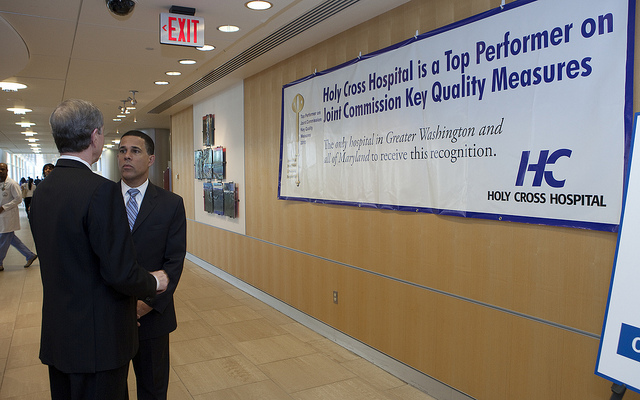Health exchanges: A ‘one-stop-shop for the uninsured and unemployed to find health insurance’
By Becky Vlamis

Health exchanges: A ‘one-stop-shop for the uninsured and unemployed to find health insurance’
By Becky Vlamis
With the future of the ACA uncertain, many states are waiting on the Supreme Court ruling expected later this month. This late in the game, Governor Pat Quinn would almost certainly have to use an executive order to meet federal deadlines.
While the specifics can vary considerably, all health exchanges would essentially establish a one-stop-shop for the uninsured and unemployed to find health insurance. Leemore Dafny, a professor at Northwestern’s Kellogg School of management who studies health care economics, compares them to Orbitz or Kayak. “You plug in the parameters, and it tells you what’s available,” she said.
With all the information in one place, proponents argue consumers are better equipped to make informed decisions about their options.
Coupled with the individual mandate, which forces healthier people into the system, exchanges could bring down the cost of care.
The numbers suggest that’s been the case with the Massachusetts exchange, better known these days as Romneycare. Currently, 96 percent of the state has coverage, and premiums haven’t risen as quickly as elsewhere in the country.
Ironically, the states with the most established exchanges — Massachusetts and Utah — got their systems up-and-running long before the ACA became law.
Other states (like New Mexico) moved forward but then reversed course.
Soon after Obama passed the ACA, the state’s then-governor used an executive order to create an office tasked with creating an exchange.
Daniel Derksen, a family physician with policy experience, headed the effort. He claims New Mexico was set to meet deadlines required to receive federal funding, but a newly-elected governor pulled the plug.
The state, which has the second-highest percentage of uninsured in the country, “missed an unprecedented opportunity,” he said.
On Friday, Dafny and Derksen join Eight Forty-Eight to discuss how health exchanges work and whether they actually bring down the cost of insurance.
